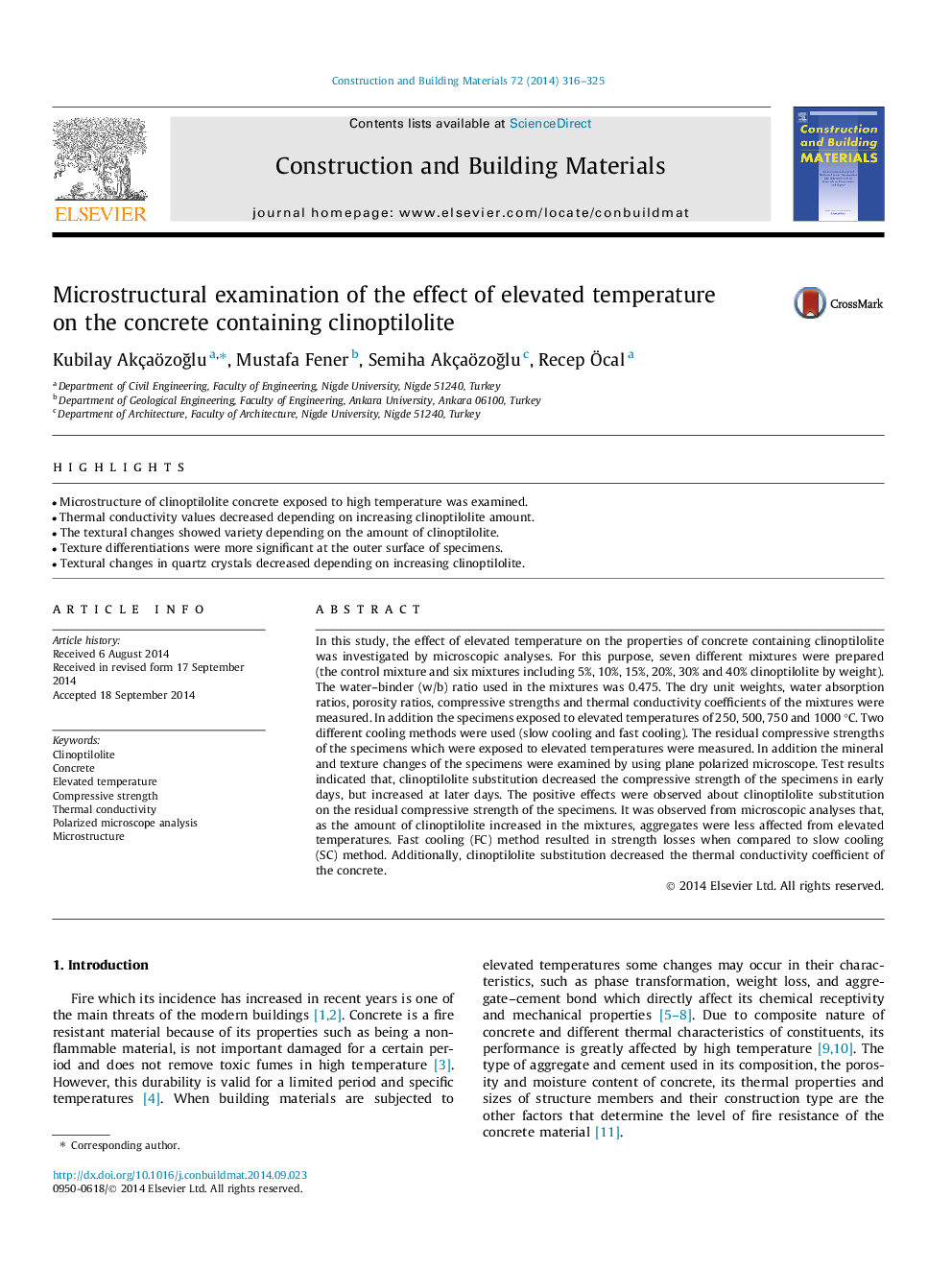| Article ID | Journal | Published Year | Pages | File Type |
|---|---|---|---|---|
| 6722172 | Construction and Building Materials | 2014 | 10 Pages |
Abstract
In this study, the effect of elevated temperature on the properties of concrete containing clinoptilolite was investigated by microscopic analyses. For this purpose, seven different mixtures were prepared (the control mixture and six mixtures including 5%, 10%, 15%, 20%, 30% and 40% clinoptilolite by weight). The water-binder (w/b) ratio used in the mixtures was 0.475. The dry unit weights, water absorption ratios, porosity ratios, compressive strengths and thermal conductivity coefficients of the mixtures were measured. In addition the specimens exposed to elevated temperatures of 250, 500, 750 and 1000 °C. Two different cooling methods were used (slow cooling and fast cooling). The residual compressive strengths of the specimens which were exposed to elevated temperatures were measured. In addition the mineral and texture changes of the specimens were examined by using plane polarized microscope. Test results indicated that, clinoptilolite substitution decreased the compressive strength of the specimens in early days, but increased at later days. The positive effects were observed about clinoptilolite substitution on the residual compressive strength of the specimens. It was observed from microscopic analyses that, as the amount of clinoptilolite increased in the mixtures, aggregates were less affected from elevated temperatures. Fast cooling (FC) method resulted in strength losses when compared to slow cooling (SC) method. Additionally, clinoptilolite substitution decreased the thermal conductivity coefficient of the concrete.
Keywords
Related Topics
Physical Sciences and Engineering
Engineering
Civil and Structural Engineering
Authors
Kubilay AkçaözoÄlu, Mustafa Fener, Semiha AkçaözoÄlu, Recep Ãcal,
